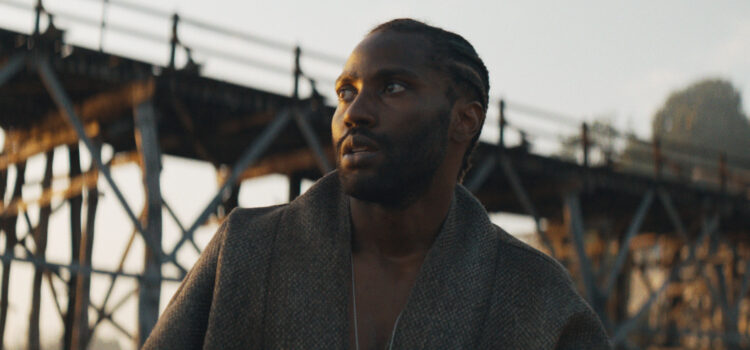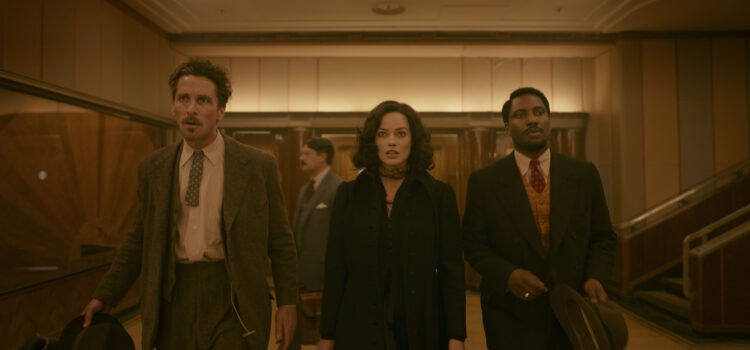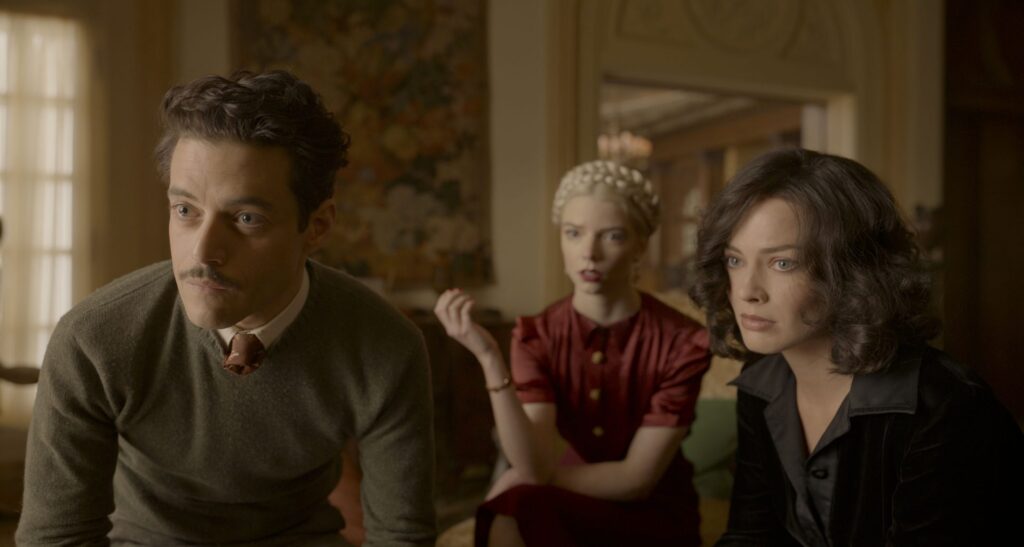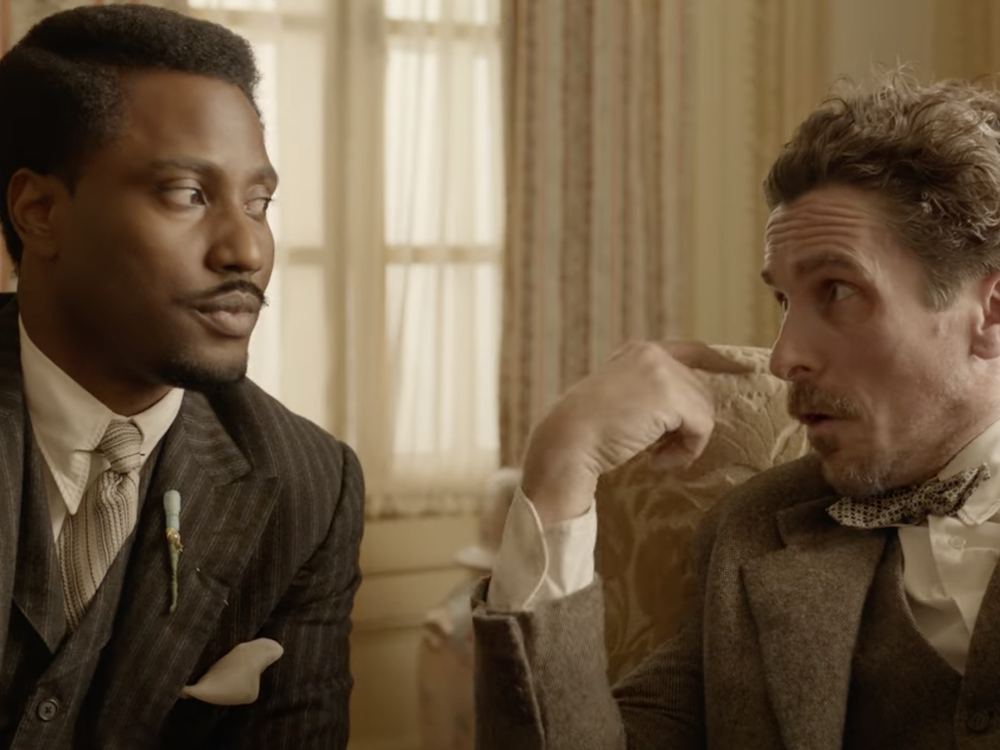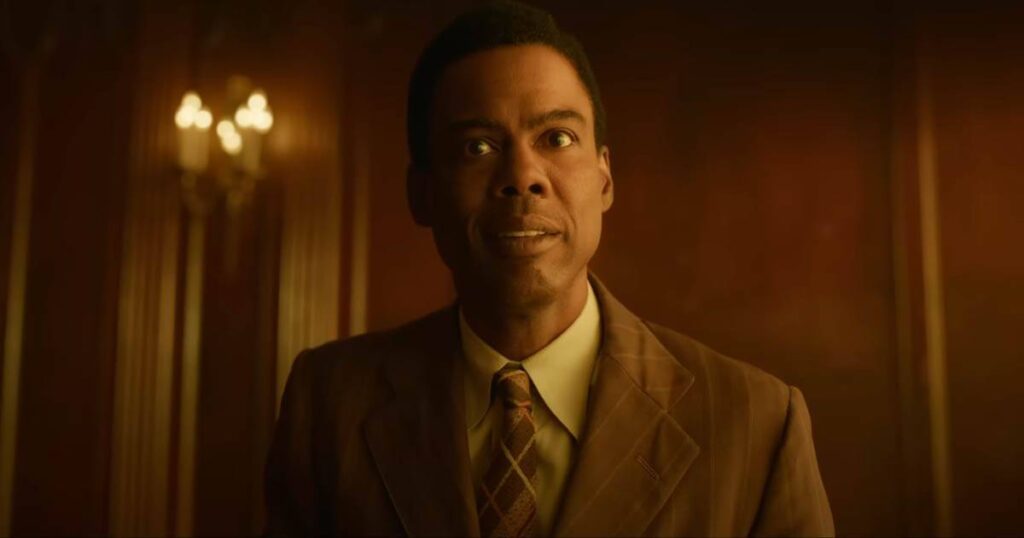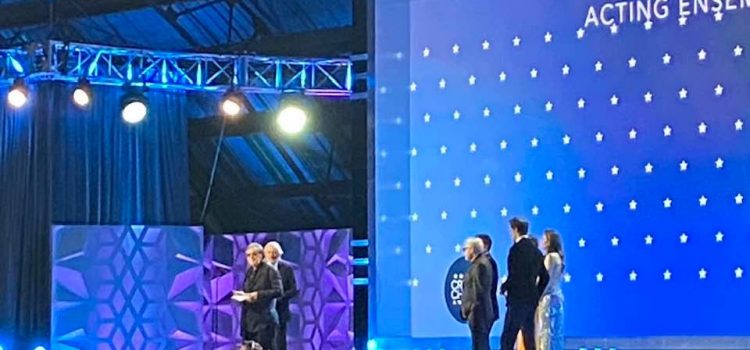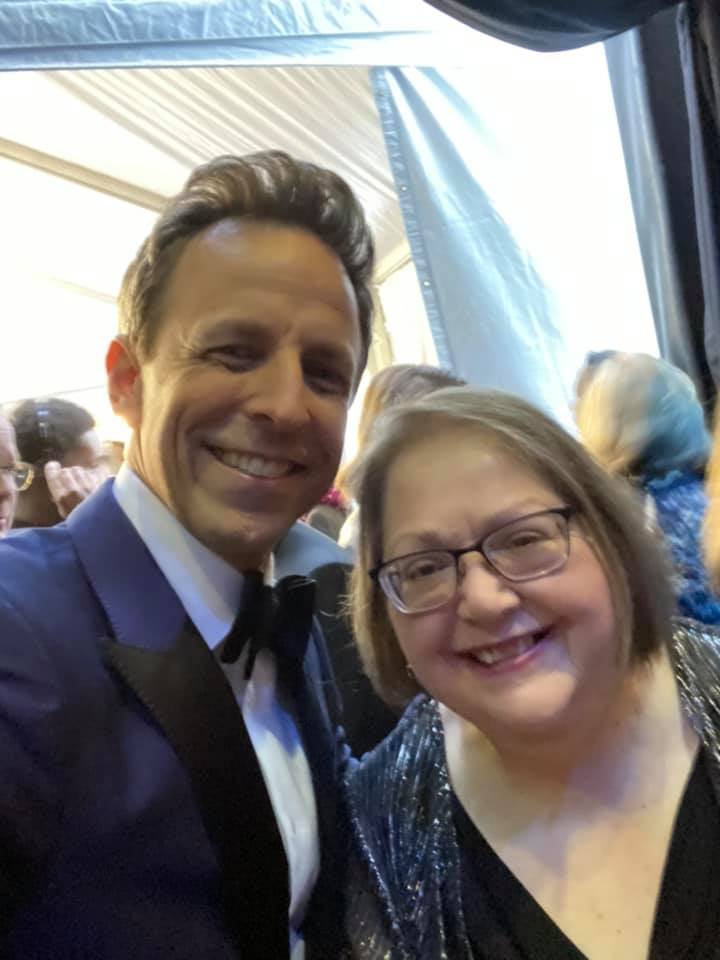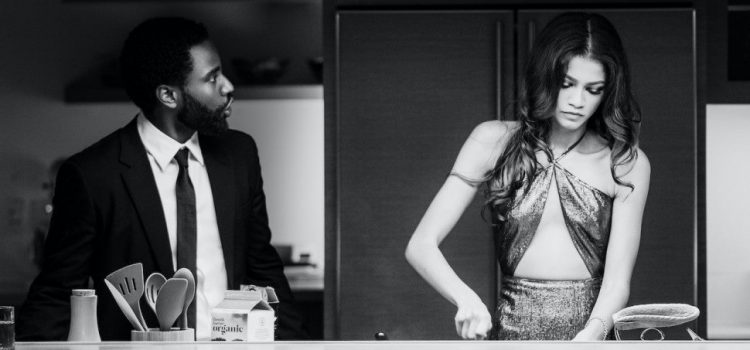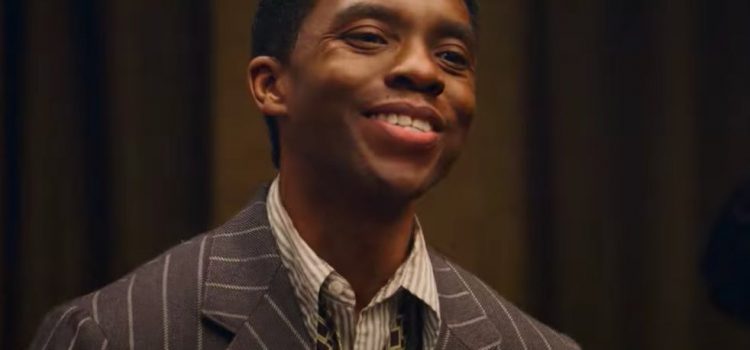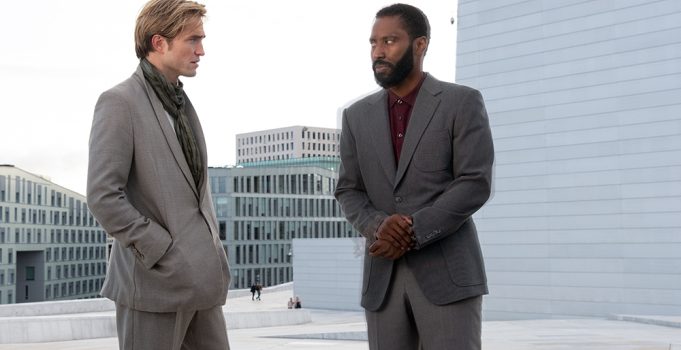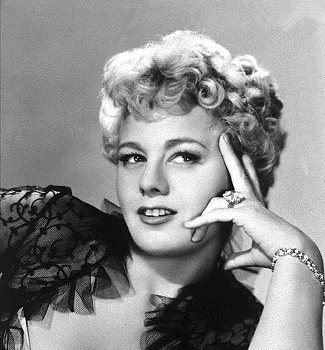By Alex McPherson
Visually sumptuous but thematically reductive, director Gareth Edwards’ science-fiction drama, “The Creator,” can’t match its awe-inspiring imagery with a well thought-out story.
Edwards’ film opens with a retro-style newsreel setting the scene. The year is 2055, and advanced AI robots (some with “Chappie”-like appearances and others, called “Simulants,” who resemble humans with hollow cylinders in their heads carrying the donated consciousnesses of deceased people) assist humans in their day-to-day-lives. Disaster strikes one day, however, and a nuclear bomb goes off in Los Angeles, with AI allegedly to blame.
The American government and its Western allies ban the technology, while the Republic of New Asia, a mishmash of various Asian countries, embraces AI. Thus a war is sparked between America and New Asia–in which the American military uses a massive Death-Star-esque weapon called Nomad, which scans landscapes like a photocopier and reigns down explosive, synth-heavy destruction upon any poor saps caught in its radius.
We meet our protagonist, Joshua (John David Washington), who lost an arm and a leg in the blast, a decade later, as he works undercover as a military operative seeking to hunt down the “Nirmata,” an inventor who’s supposedly built something that will win the war for AI. Joshua is married to a pregnant robotics whiz named Maya (Gemma Chan), who’s lived among Simulants her whole life and will hopefully lead Joshua and his team to victory, without knowing his true intentions. After a raid goes badly, Maya is supposedly killed and Joshua is injured again – Nirmata is still out there.
Five years later, Joshua (depressed and retired from the special-forces) is pulled back into the fray, after the severe Colonel Howell (an unhinged Allison Janney) shows him recorded footage proving that Maya is still alive, and that they’ve located Nirmata’s creation. Thus, Joshua and his posse travel behind enemy lines, and chaos ensues, with Joshua eventually locating the earth-shattering invention: a childlike simulant (Madeleine Yuna Voyles), who he dubs Alphie. Alphie has the power to shut down any technology with her mind, and her powers grow as she grows.
Will Joshua bond with Alphie or kill her? Will he learn the error of his ways and learn to accept the Other? Who are really the “heroes” of this story? They sure as hell aren’t Americans, or humankind in general. Could this film be any more blunt in its social commentary?
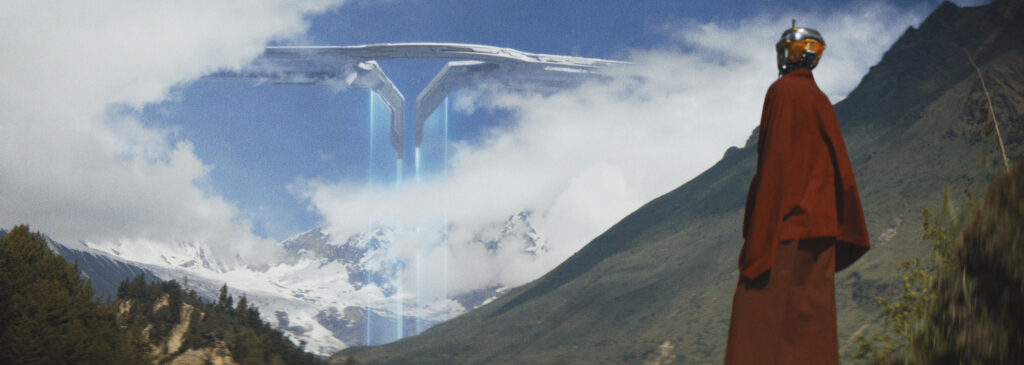
For all its visual magistery, “The Creator” ultimately has little of substance to say about imperialism, acceptance, and the existential threat of AI. Cobbling together elements of “Apocalypse Now,” “Blade Runner,” “Avatar,” and “District 9,” among others, Edwards’ film lumbers down a predictable path beset by insensitivity and uneven pacing. The tactility of the world-building and visceral action sequences can’t make up for the fact that, at best, “The Creator” remains a simplistically watchable sci-fi war film, and, at worst, a tone-deaf story in support of AI, where humankind is the enemy, capitalizing on real-world horrors to support its obvious messaging.
It’s a shame, because Edwards and co. truly make the most of their modest budget to present visuals going toe-to-toe with anything else released this year. From rice fields to ramshackle fishing villages, neon-drenched cityscapes, isolated beaches, and valleys surrounded by saw-toothed mountains, “The Creator” admirably grounds its futuristic technology onto a tangible, physical canvas. Much of the film was shot on-location across such places as Japan, Thailand, Indonesia, and Cambodia, and the resulting visuals, captured by cinematographer Greig Fraser with grimy, at-times documentary-esque ruggedness, have an extra layer of authenticity that further lessens the divide between the film’s alternate reality and our own.
Additionally, action sequences unfold with weighty, removed coldness. They’re often unpleasant in terms of the sheer number of casualties (human or otherwise), and don’t shy away from showcasing the might of the American military’s weapons on vulnerable targets, or the AI soldiers’ viciousnesses in return – even more effective when Hans Zimmer’s blaring score fades away entirely from the background.
The tech on display in “The Creator” largely seems within the realm of possibility with the way our current “advancements” are trending. Elements such as the aforementioned downloading-of-consciousness and robot soldiers are chilling, along with the fact that AI sentience doesn’t feel all that far off in real-life. It’s unlikely they’d all be as valiant and upstanding as “The Creator” depicts them, though.
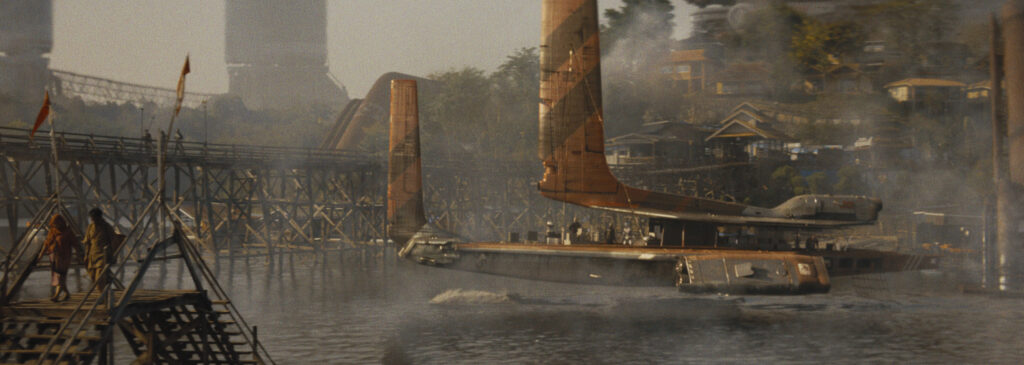
More uncomfortable is the way Edwards and co. transpose iconography of the Vietnam War into this “futuristic” storyline. It feels problematic, to say the least, that this new “race” of beings largely stands-in for Asian characters, calling to mind cultural memories of actual atrocities, made even less tactful by the fact that the vast majority of AI characters – Alphie included, despite Voyles’ best efforts – are one-note and emblematic of the film’s unambiguous approach to storytelling; their literal inhumanity is sometimes the target of disturbing cruelty.
Indeed, perhaps the heavy-handed messaging and seen-it-before plot developments would be more excusable if “The Creator” had characters worth caring about. Washington, to his credit, tries his darndest to make us connect to Joshua, but the film’s messy editing kneecaps him, giving viewers only sporadic moments to slow down and feel his pain, anguish, and renewed purpose. Frequent flashbacks to Joshua’s time with Maya break momentum, as does the film’s confused sense of space and time itself. A character could be at the base of a mountain one moment and at the top of it the next, contrasting heavily with the otherwise naturalistic approach to world-building. It’s understandable that Edwards wants to show viewers as many sights and sounds as possible, but we lose crucial in-between moments as a result, where the characters are able to develop beyond their familiar archetypes. Voyles brings warmth, levity, and impassioned attempts at inducing tears in her performance as Alphie, but there’s ultimately not much that separates her story from other “special child” narratives.
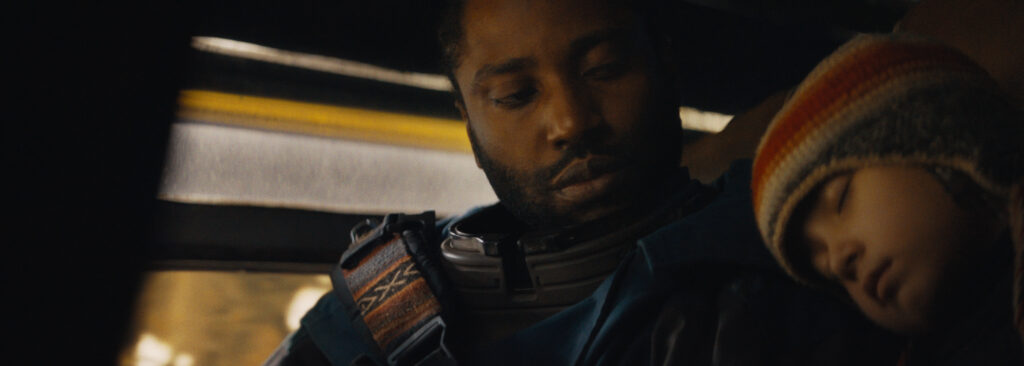
What we’re left with is a film that’s an at-times impressive spectacle undercut by a self-serious, even queasy refusal to break tradition. The big screen might be the best way to watch “The Creator,” but viewers should leave expectations of the next great sci-fi masterpiece at the door.
“The Creator” is a 2023 science-fiction action film co-written and directed by Gareth Edwards and starring John David Washington, Madeleine Yuna Voyles, Gemma Chan and Allison Janney. It is rated PG-13 for violence, some bloody images and strong language, and runs 2 hours, 13 minutes. It opened in theaters September 29. Alex’s Grade: C+
Alex McPherson is an unabashed pop culture nerd and a member of the St. Louis Film Critics Association.

